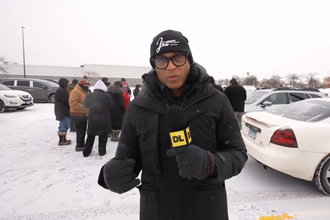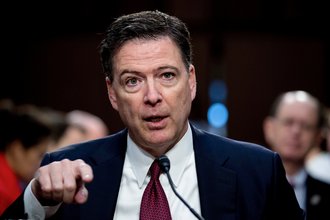Surveillance expansion threatens press freedom – and everyone else's


Image created using Midjourney, CC BY-NC
Mass surveillance is widespread. Congress must rein in government spying powers.
In 2013, whistleblower and longtime Freedom of the Press Foundation (FPF) board member Edward Snowden’s stunning revelations of mass surveillance by the National Security Agency shocked the world. Since then, we’ve learned even more about the alarming scope of surveillance by the U.S. government.
Mass surveillance undermines everyone’s privacy, and it threatens press freedom by allowing the government to spy on communications between journalists and their sources.
Tell Congress to Fix Section 702 of FISA.
Call or email your senator or representative and urge them to fix Section 702 of the Foreign Intelligence Surveillance Act. A recent change to the law has vastly expanded the government’s spying powers.
Help advance press freedom by writing newspaper op-eds or letters to the editor in support of fixing Section 702 of FISA.

Also: Judge halts search of records seized from Washington Post reporter

A new case may legalize suspicionless mass surveillance of journalists and whistleblowers

If the government abuses the law to spy on a former FBI director, it could do the same to journalists and sources

To answer questions about how the public can safely share information with the press, FPF experts engaged with Reddit’s r/IAmA community members

Plus: Justice Department lets former White House officials accused of stealing presidential records keep them.

In FPF webinar, journalists discuss past administrations’ surveillance of their source communications and what Trump may do next

The anniversary is a reminder to resist the characterization of whistleblowers as threats to national security for revealing information the government wants to keep secret.

Automated license plate readers are everywhere, and they can often tell a story about your movement

Plus: We’re ready to sue if Paramount sells out the press

A new letter from Sen. Ron Wyden reveals which wireless carriers inform customers about government surveillance requests